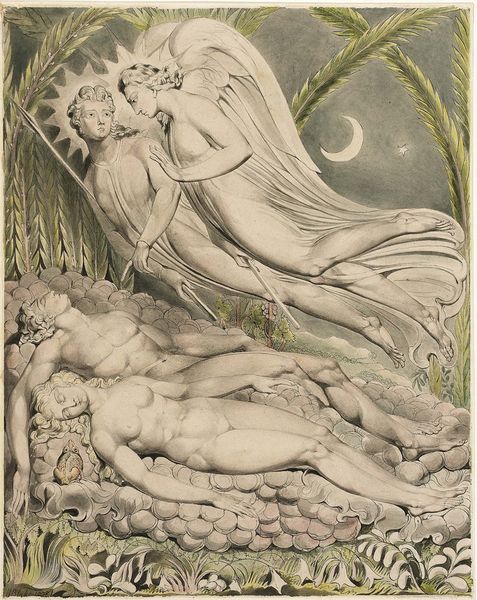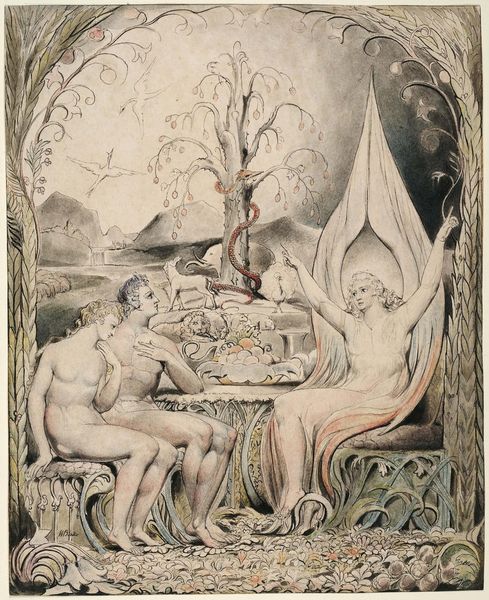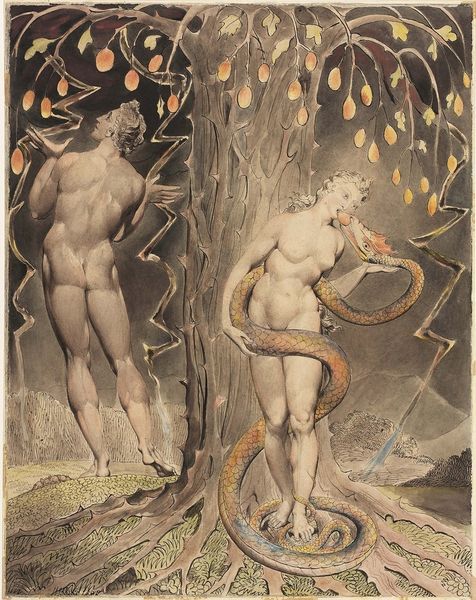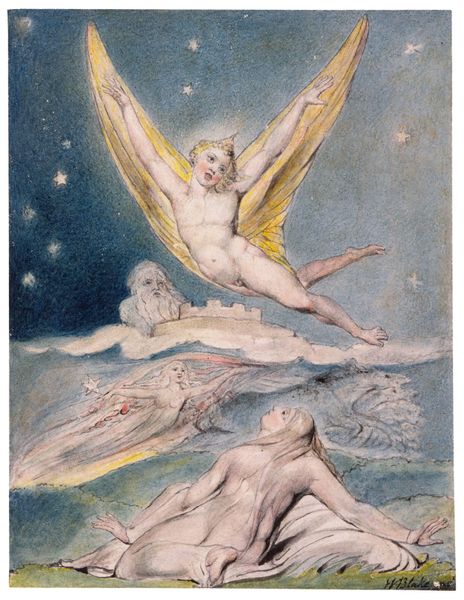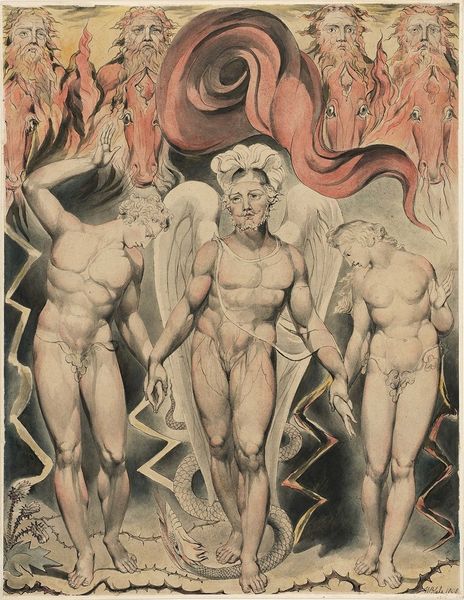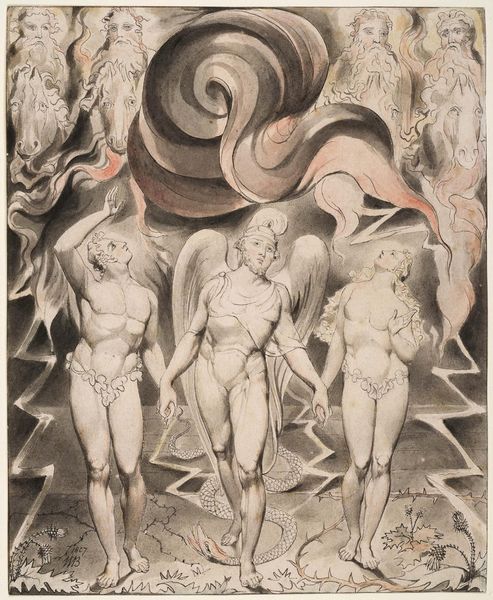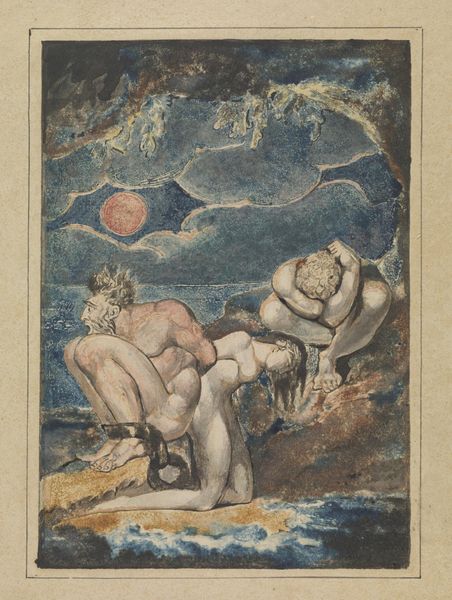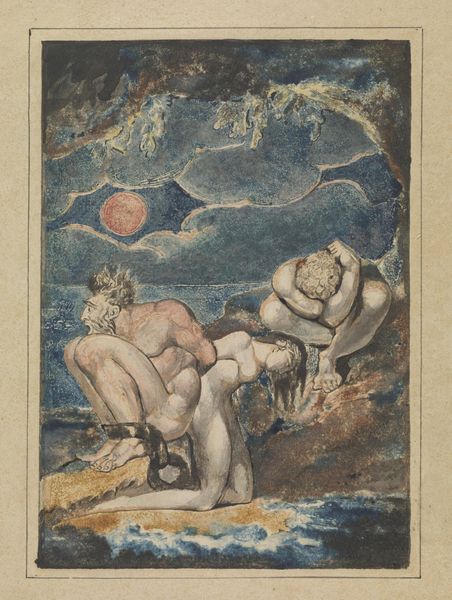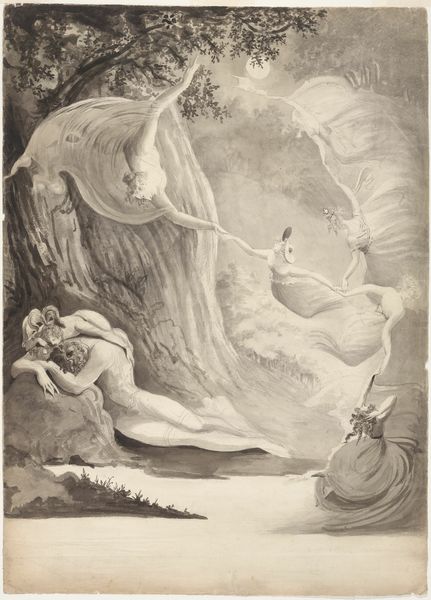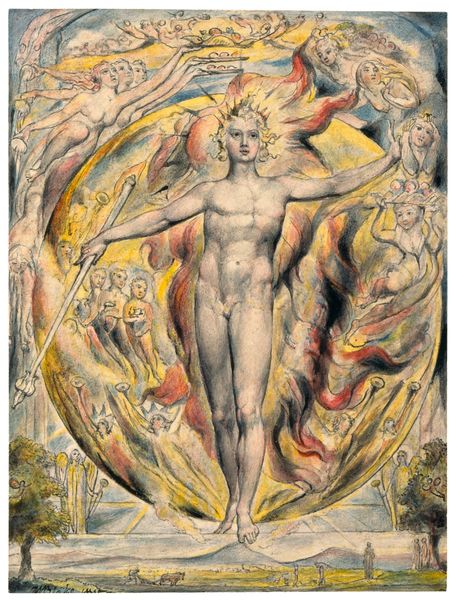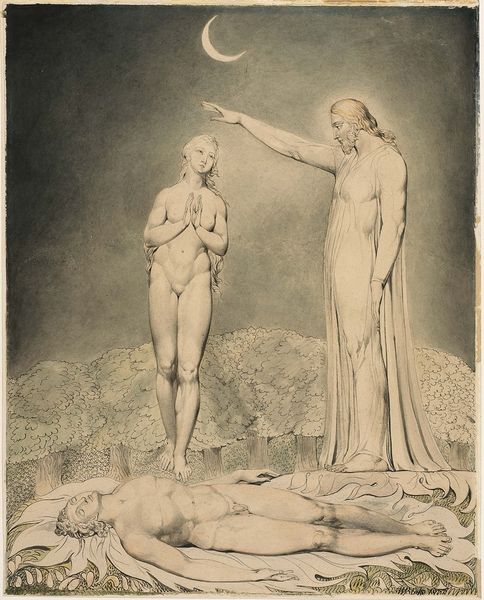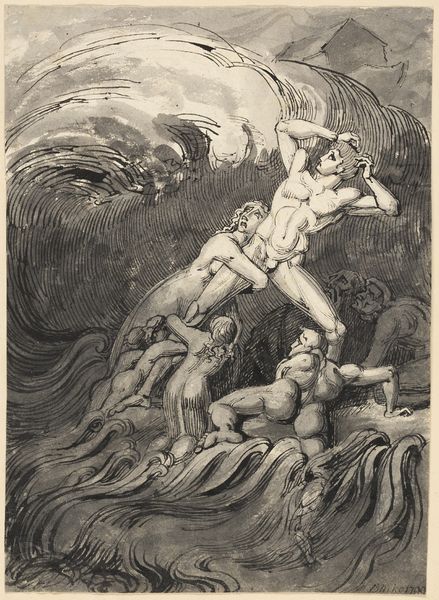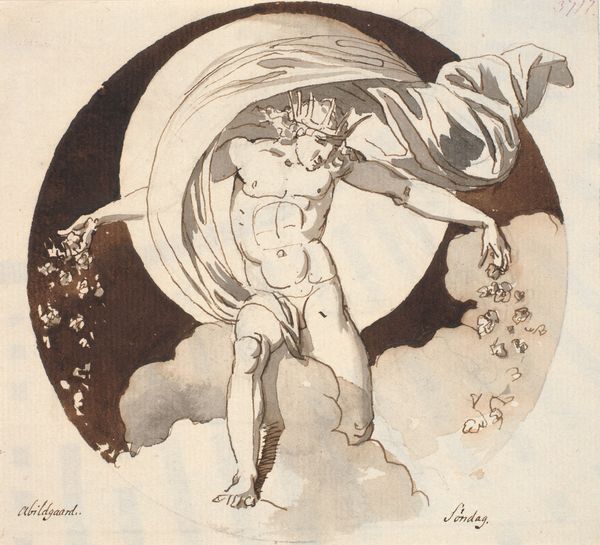
drawing, watercolor
#
drawing
#
narrative-art
#
figuration
#
watercolor
#
coloured pencil
#
romanticism
#
mythology
#
line
#
watercolour illustration
#
nude
#
watercolor
Copyright: Public domain
Editor: Here we have William Blake’s “Illustration to Milton's Lost Paradise” from 1808, rendered in watercolor and drawing. There’s such a haunting yet ethereal quality to it. What strikes you most about this piece? Curator: For me, it’s the very material treatment that gives the work its power. Blake's use of watercolor isn't just representational; it’s a process rooted in materiality. Note how the line work feels almost etched, defying the fluidity we usually associate with watercolor. What impact does this deliberate resistance have? Editor: I see what you mean. It almost feels like he's battling the medium itself, giving the image a kind of forced clarity. Curator: Precisely. This links to the means of production – the deliberate struggle to form an image reflecting the very human struggle at the heart of Milton's text. Blake's labor becomes visible. It goes beyond simple illustration; it embodies a critique of power. Editor: Critique of power? Could you explain? Curator: Consider the consumption of art in Blake's time, its patronage and the elite circles it catered to. By employing techniques that evoke craft, the "humble" watercolor, the explicit line work – isn’t Blake challenging the established hierarchy of art, class and Milton's own representation of god? How can we separate materiality from message? Editor: So, you’re saying that Blake uses the materials themselves to question both artistic and societal norms? Curator: Yes. It's about the raw materiality, the labour embedded within, and how that contributes to our reading of paradise lost, both Milton's and perhaps Blake's own version of paradise, wrestling with creation. Editor: That makes so much sense. I was initially caught up in the imagery, but looking closer at the medium transforms my interpretation. Curator: Indeed. Thinking about materials and production opens us to a richer, more nuanced understanding of art, society, and ultimately ourselves.
Comments
No comments
Be the first to comment and join the conversation on the ultimate creative platform.
